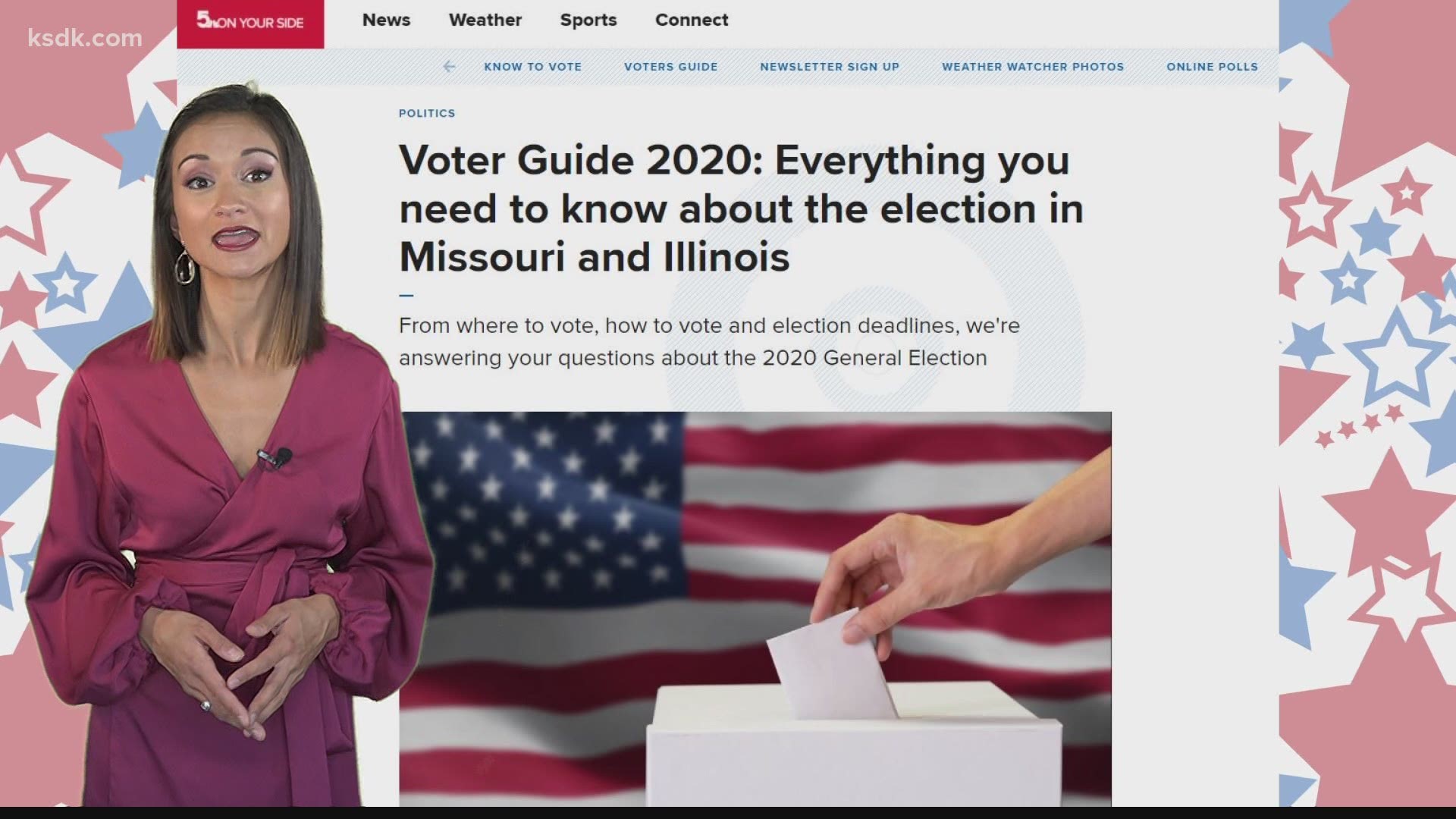ST. LOUIS — The city of St. Louis has four local issues on the Nov. 3 ballot.
Here's a breakdown of what these questions will look like on your ballot and what they really mean.
PROPOSITION D
Ballot language:
"Shall the City of St. Louis adopt an ordinance to:
* establish an open, non-partisan system for elections to the offices of Mayor, Comptroller, President of the Board of Aldermen, and Alderman
* enable voters to choose all the candidates they wish in the open, non-partisan primary
* allow the top two candidates to then compete in a runoff general election?"
What does it mean?
Proposition D would establish non-partisan elections for the offices of mayor, comptroller, the board of alderman president and the board of aldermen.
Under the system, candidates from all parties would appear together on the primary ballot, and voters could vote for more than one candidate regardless of party. The top two candidates from the primary would face each other in the general election, regardless of their political party.
St. Louis skews strongly Democratic, and so the winner of the Democratic primary generally goes on to win the general election. Proponents of Proposition D say allowing non-partisan elections will give voters the chance to choose who they think is the best fit for the job instead of simply voting along party lines.
For example, under this system, St. Louis Mayor Lyda Krewson would have faced fellow Democrat Tishaura Jones in the 2017 mayoral election, possibly leading to a different result.
PROPOSITION 1
Ballot language:
"Shall Section 2 of Article VIII of the City of St. Louis Charter, which requires all officers and employees of the City of St. Louis to reside within the City's boundaries, be amended to permit the employees of the City of St. Louis except for City agency and department directors appointed by the Mayor to reside outside of the City's boundaries?"
What does it mean?
Proposition 1 would amend the city's charter to allow many city employees to live outside of St. Louis city limits. Currently, the charter requires that public safety workers live in the city for at least the first seven years of employment.
State legislators previously passed HB 46 in September, which requires St. Louis to lift those residency requirements for officers, firefighters and other public safety workers for at least the next three years. Proposition 1 would officially and permanently amend the city's charter to exclude all city employees from the residency requirement, except for agency and department directors appointed by the mayor.
Proponents of the proposition say the residency requirement makes it harder to recruit and retain employees, while opponents argue employees will have less of a connection to the city they serve if they live outside of it.
PROPOSITION R
Ballot language:
"Shall the City of St. Louis levy an additional tax of six cents per each one hundred dollars ($100.00) of assessed valuation as authorized by Section 210.860 R.S.Mo. for the purpose of providing additional funding for community children's services, in particular early childhood services for children aged five years and under, in addition to the current levy of nineteen cents per each one hundred dollars ($100) of assessed valuation?"
What does it mean?
Proposition R would impose an additional tax of 6 cents per $100 property valuation to fund early childhood services for children ages 5 and under, as well as other community children's services.
This would be on top of the current levy of 19 cents per $100, coming out to 25 cents per $100. The tax would bring in an estimated $2.3 million annually.
Proponents argue that the city needs to increase early childhood services programming but can't do so without the additional money this tax would bring in.
PROPOSITION T
Ballot language:
"Should Chapter 23 of the Revised Code of the City of St. Louis be amended to impose a gross receipts tax of seven and one half percent of the gross receipts obtained from Telecommunications Providers, which are and include every entity now or hereafter engaged in a general telecommunication business in the City, providing telecommunication, telecommunications exchange, or local, toll, or long distance, telephone service to its customers with a service or billing address within the St. Louis City limits; and Fiber Networks Providers, which are and include every entity now or hereafter engaged in providing fiber networks, built whole or in part in the City's public right of way, which are not internet or service providers subject to franchise fees, to customers and other users of fiber networks?"
What does it mean?
The passage of Proposition T would impose a 7.5% gross-receipts tax on telecommunication and fiber network providers, in the hopes of making St. Louis a more desirable market for high-speed internet companies.
This tax would replace the current structure, where companies that lay fiber networks must pay an annual right-of-way fee of $2.20 per linear feet of fiber.
Supporters say a gross-receipts tax will keep providers from having to pay a city tax until they get customers, which will in turn encourage competition and incentivize fiber network providers to enter the local market and expand their service areas.

